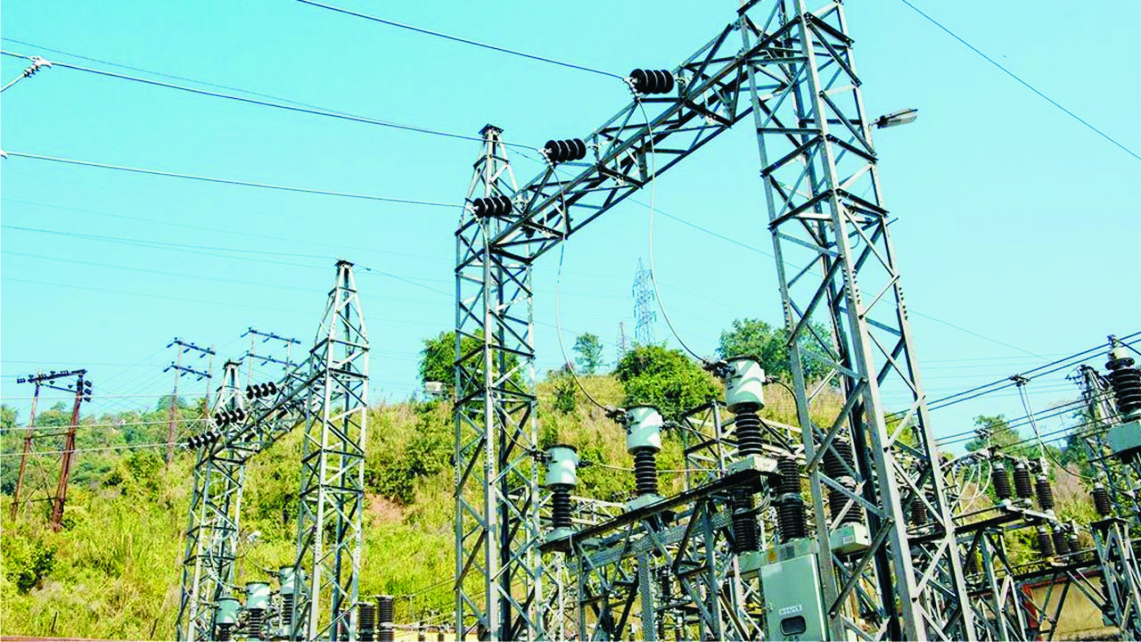Business
Why We Chose Siemens For 25,000MW Grid Expansion –FG

The Federal Government has explained why it chose the German firm, Siemens AG, to expand Nigeria’s power grid, saying the company was best qualified to rehabilitate the dilapidated electricity infrastructure in Nigeria.
Minister of Power, Sale Mamman, who disclosed this in series of tweets via his official Twitter handle, on Monday, explained that the Siemens deal would expand Nigeria’s power grid capacity to 25,000 megawatts.
The Tide reports that Nigeria’s power generation on the grid currently hovers between 4,000MW and 5,000MW.
Mamman noted that not all Nigerians had access to power, while those who had suffer irregular power supply.
“So the Siemens project is here to upgrade the national dilapidated infrastructure. The deal is monumental for this sector because the early phases of delivery will improve the grid’s operational capacity,” he stated.
The minister added, “It will open up corridors for evacuation that will greatly reduce the burden of delivered capacity, which is costing the sector so much.
“Investors will be more confident to participate in the sector as the grid achieves more functional operational capacity. This will also reduce financing cost in the evacuation process.”
Speaking on the timeline to complete the project, Mamman said it would be for five years, as implementation would take place in three phases, which, according to him, had already commenced.
He said, “First and foremost, let me state that Siemens was chosen because they are the best in the business and have already undertaken similar initiatives elsewhere in Egypt and Iraq.
“Furthermore, they have experience operating in the local environment, which means we will have no issues in the implementation process.”
The minister said phase one of the project was focusing on measures to increase end-to-end operational grid capacity to 7,000MW.
He said phase two targets to expand the capacity of the transmission and distribution system and to enable evacuation of up to 11,000MW of electricity to end users.
“Phase three targets expanding the power grid to 25GW capacity through further expansion of the generation, transmission and distribution systems,” Mamman stated.
In order to ensure the completion of the deal, the minister said the government had to institutionalise the project and approved an institutional framework that consists of a government sponsored special purpose vehicle (SPV).
He said, “The SPV is capitalised by the ministry of finance to among others, serve as a regulator and guarantor of the project, representing the Federal Government in the Presidential Power Initiative negotiation.”
On July 29, 2020, the Federal Executive Council approved the payment of €15.21million (N6, 940,081,465.20) offshore and N1.708billion onshore as part of Nigeria’s counterpart funding for the power deal with Siemens AG.
The total amount approved by FEC in July this year for the deal was N8, 648,081,465.2.
Business
FIRS Clarifies New Tax Laws, Debunks Levy Misconceptions

Business
CBN Revises Cash Withdrawal Rules January 2026, Ends Special Authorisation

The Central Bank of Nigeria (CBN) has revised its cash withdrawal rules, discontinuing the special authorisation previously permitting individuals to withdraw N5 million and corporates N10 million once monthly, with effect from January 2026.
In a circular released Tuesday, December 2, 2025, and signed by the Director, Financial Policy & Regulation Department, FIRS, Dr. Rita I. Sike, the apex bank explained that previous cash policies had been introduced over the years in response to evolving circumstances.
However, with time, the need has arisen to streamline these provisions to reflect present-day realities.
“These policies, issued over the years in response to evolving circumstances in cash management, sought to reduce cash usage and encourage accelerated adoption of other payment options, particularly electronic payment channels.
“Effective January 1, 2026, individuals will be allowed to withdraw up to N500,000 weekly across all channels, while corporate entities will be limited to N5 million”, it said.
According to the statement, withdrawals above these thresholds would attract excess withdrawal fees of three percent for individuals and five percent for corporates, with the charges shared between the CBN and the financial institutions.
Deposit Money Banks are required to submit monthly reports on cash withdrawals above the specified limits, as well as on cash deposits, to the relevant supervisory departments.
They must also create separate accounts to warehouse processing charges collected on excess withdrawals.
Exemptions and superseding provisions
Revenue-generating accounts of federal, state, and local governments, along with accounts of microfinance banks and primary mortgage banks with commercial and non-interest banks, are exempted from the new withdrawal limits and excess withdrawal fees.
However, exemptions previously granted to embassies, diplomatic missions, and aid-donor agencies have been withdrawn.
The CBN clarified that the circular is without prejudice to the provisions of certain earlier directives but supersedes others, as detailed in its appendices.
Business
Shippers Council Vows Commitment To Security At Nigerian Ports
-
Business2 days ago
Shippers Council Vows Commitment To Security At Nigerian Ports
-

 Business2 days ago
Business2 days agoCBN Revises Cash Withdrawal Rules January 2026, Ends Special Authorisation
-

 Business2 days ago
Business2 days agoNigeria Risks Talents Exodus In Oil And Gas Sector – PENGASSAN
-
Business2 days ago
NCDMB, Others Task Youths On Skills Acquisition, Peace
-

 Business2 days ago
Business2 days agoFIRS Clarifies New Tax Laws, Debunks Levy Misconceptions
-

 Politics2 days ago
Politics2 days agoTinubu Increases Ambassador-nominees to 65, Seeks Senate’s Confirmation
-
Sports2 days ago
Obagi Emerges OML 58 Football Cup Champions
-

 News2 days ago
News2 days agoTinubu Swears In Christopher Musa As Defence Minister

